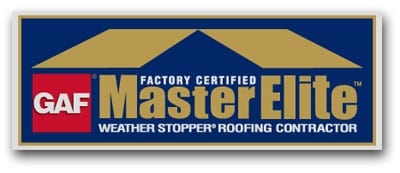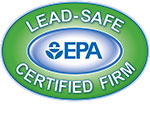In Ohio and Kentucky, we’re lucky enough to experience all four seasons…and all the storms that come with them. Unfortunately, home exteriors face the potential for anything from minor to serious damage when storms hit. One of the most commonly damaged parts of a home is the roof, simply because the surface area and position make the roof a target for destruction. Since roofing is one of the most important investments you can make, it’s important to be aware of what might happen to it in a storm.
Sources of roof storm damage
Wind Damage to Your Roof
Wind is the most common source of roof damage from storms because it’s an all-season phenomenon. Shingles can blow off the roof in heavy winds, whether that’s from a tornado, a hurricane, a blizzard, or just a thunderstorm. The strongest storms can even tear a whole roof off a home, although that’s rare and requires a particular combination of wind and pressure to occur. That situation would require a full roof replacement.
Ice, Snow, and Hail Can Desecrate Your Roof
Midwestern winter storms, blizzards, and hail can all lead to roof damage from storms. Hail may leave pockmarks or dimples in the roof. The larger the hailstones, the more hail storm roof damage there is likely to be. In addition, hail can loosen shingle granules, weakening your roof’s protection against future weather events.
Winter storms and blizzards compound the effects of wind by adding snow and ice. If a lot of snow falls on your roof and it’s unable to effectively drain, the weight of snow on your roof deck can stress the roof and lead to damage. Repeated melting and freezing leads to ice dams, which can damage both the roof and the gutter system.
Roof Debris
Storms can sometimes blow debris onto your home, whether that’s as small as leaves and twigs or as large as tree limbs. Heavy debris can dent your roof or even leave a hole in it, exposing your roof to moisture and leaks. Small leaks are easier to handle, and you might be able to fix these leaks yourself. Serious damage should be fixed by a professional in order to preserve your roof’s lifespan.
What to do about roof damage from storms
Inspect your roof damage
If you know or suspect any recent roof storm damage, you should go outside and investigate as soon as possible. Sometimes, damage is obvious to spot from the ground. You’ll want to know right away if there’s debris or if a shingle has come loose. However, for a thorough inspection, it’s best to call an expert for a roof inspection.
Professional roofers know exactly what to look for beyond the obvious signs of damage. They can double check the moisture levels, safely access all areas of the roof, and find any places where holes or potential weak spots have surfaced. Experts have checklists to follow for warning signs you need a new roof.
Contact your insurance company if you have a storm damaged roof
You might be wondering,“does insurance cover roof damage from storms?” Usually, the answer is yes. The specific circumstances of the damage and your policy coverage amount will factor into how much money your insurance will pay.
It’s helpful to be familiar with what your homeowners’ insurance policy covers before a storm, so read up on your coverage and keep a copy of your policy handy just in case. When storms hit, insurance companies have experts ready to help you file a claim. Based on the damage level assessment from your roof inspection, you will need to get funds for roof replacement or roof repair.
Prepare for potential future roof storm damage
The best way to prepare for future roof storm damage is by installing a high-quality roof in the first place. A solid roof deck with thoroughly secured, sturdy shingles will hold up much better in storms than a slapdash shingle job. You can also prepare by ensuring your roof is protected by good homeowners’ insurance and a great warranty on your roof. Midwestern weather is unpredictable, but a little advance preparation goes a long way toward ensuring your home is as ready as it can be for the weather.
Storm Damage Roof Repair or Replacement
If you’re in a need of storm damage roof repairs, based on the harm done, you may want to consider a roof replacement. Our team of expert roofing contractors can also help provide a complimentary estimate.








